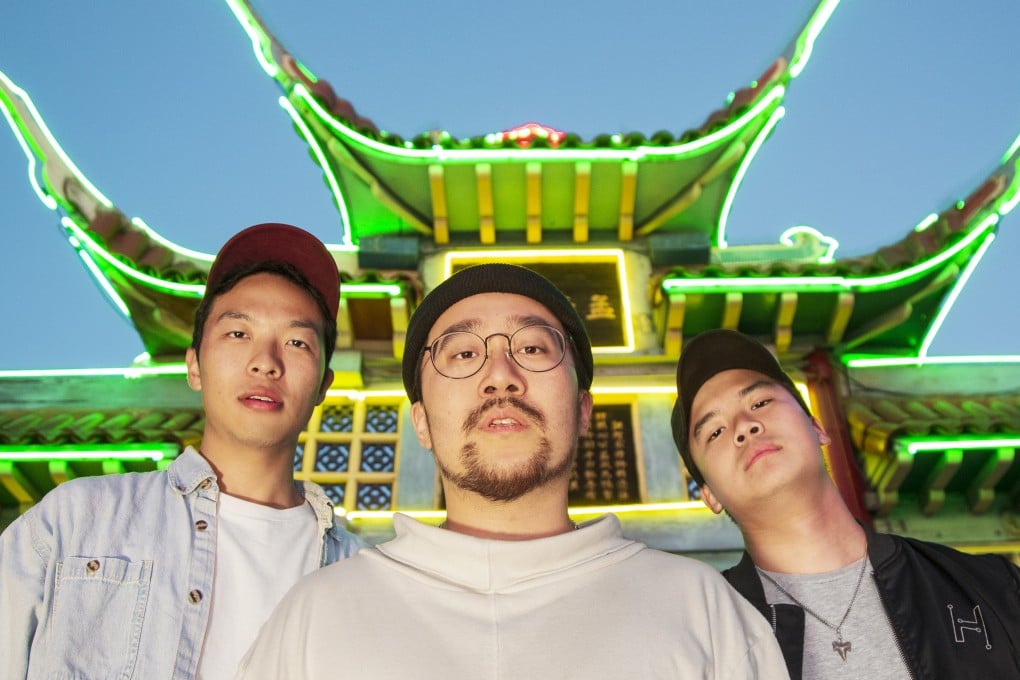The Chinese-American rappers dishing up trap hits – and making the hip-hop world take note
- Nitemrkt are making waves with their release Bag That Bao. The trio are bringing a new level of recognition to the Asian-American trap scene
- The Bag That Bao music video shows them filling their designer bags with pork buns and scarfing xiao long bao

Nitemrkt are good kids. That’s not meant to ruin their street cred.
They are also good rappers, and hardworking and deadly serious when it comes to hip hop. But the three members that make up the ascendant rap group – Jason Chu, Leo Xia and Sakiboy (James Huang) – are also good kids in the traditional, old-fashioned sense: they’re sweet, they mean well, they don’t brag the same way many up-and-coming rappers do.
“We’re just good kids who want to have fun,” says Chu, who also acts as the Los Angeles rap outfit’s manager and unofficial spokesman. “We’re not trying to pop bottles and do bumps [of cocaine]. I always think about that Drake lyric: ‘While all of my closest friends out partyin’, I’m just here makin’ all the music that they party to’.”
Nitemrkt’s recent single, Bag That Bao, has Los Angeles and the greater hip-hop world taking notice, bringing a new level of recognition to the burgeoning Asian-American trap scene (a subgenre of rap) and winning them fans globally and across Los Angeles’ many multi-ethnic neighbourhoods.
The group broke through to a wider audience in July, when Jenny Zhang, a writer for the website Eater, shared the video for Bag That Bao, an “irresistibly catchy” Chinese trap song about steamed buns.